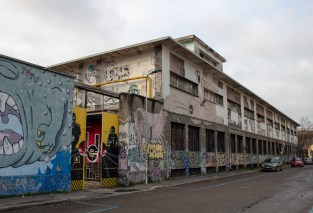The arrival of the Proms prospectus, with its glamorous pictures of the stars of today, makes me wonder how much those very palatable-looking people are costing the BBC. The question is prompted by the style of the photography — the sexing up of the Weapons of Mass Destruction dossier has nothing on how string players enjoy curling round their instruments. It is all a far cry from the stolid, besuited look classical musicians used to affect, as if one could trust them to get their passagework right while delivering mature interpretations of intellectually taxing repertoire. The modern version says nothing if it doesn’t say expensive.
The issue of what the leading names in classical music can charge was addressed recently in an article in Classical Music magazine. It is acknowledged that getting precise figures out of agents on this topic is an inexact science, but I’ll jump in straight away and recount my own experience of about ten years ago with those who represented a leading soprano of the day who we wanted to sing alongside us at a world première in Birmingham. The standard cost was about £50,000, to which had to be added a small publication of extra conditions, stipulating class of travel and accommodation, down to what should be in the refrigerator backstage. Just for good measure it transpired that she couldn’t sing the part, which the composer had to rewrite for her. The concert was cancelled.
One might have thought that after all the financial crises of recent years the asking rate might have come down, and in every category outside the super league it certainly has. But for the lucky few the sky seems to be the limit: the highest earner listed is Yo-Yo Ma at £63,275 per appearance, followed by Lang Lang at £47,485. Two violinists — Maxim Vengerov and Anne-Sophie Mutter — come in at £31,645 and £33,330 respectively. Antonio Pappano is reputedly on a salary of £600,000 at Covent Garden. Add Dudamel, Barenboim, Gergiev, Jansons, Rattle, Domingo, Nigel Kennedy and Dawn Upshaw, and you have a very special society.
What interests me about this is that although these people are sometimes paid dream sums of money — I guess they are the highest earners classical music has ever seen — they are not as absolutely famous as some of their predecessors. I don’t have figures for what Karajan was paid, but it is true to say that no one working now is as internationally pre-eminent as he was, and never will be. The same could be said for a handful of others: Furtwängler, Toscanini, Solti, Nilsson, Schwarzkopf, Fischer-Dieskau. Everyone must have their favourites, but I bet few of them were British and most were German-speaking.
Two things have changed since Karajan’s day. The first is that new Asian and Arab markets for western classical music have come on-stream in a big way. Like the best wine 20 years ago, classical music has become a status symbol that oil-rich rulers feel they must have; and, as with Château Lafitte, they have pushed the purchase price up in the top category. For example, Oman’s new Royal Opera House opened last October with a gala concert conducted by Placido Domingo, and has since welcomed the Vienna Philharmonic under Gergiev and others of similar standing. Since there has indeed been a crunch in what ordinary arts organisations and symphony halls nearer home can pay even their star performers, more of a divide than ever is evident between the few and the rest. Of course the superstars will perhaps not always demand these super fees, but there has to be some correlation between what they ask for in Oman and what in Liverpool, or the Omanis might start asking questions.
The other change has been in the general scene. Classical music used to be a much more streamlined business than it is now. Largely restricted to 200 years of German-dominated repertoire, performed by a few much-vaunted and cossetted Germans and Austrians, we accepted that this was it. War or no war, the teaching in our conservatories was as enslaved as the mindsets of our concert-goers. But thanks largely to the spread of interest in early music — in which, before the high baroque, the German-speaking world was weak — this hegemony had broken down by the time the internet gave anyone with talent a claim on our attention.
It is an interesting state of affairs: the number of top performers has vastly increased, as have the potential rewards, all within the framework of a financial crisis. I think the BBC should carry on as they are: refuse to pay top dollar, present all the musicians who agree to this in the most flattering light possible, and leave the super people to give three concerts a year elsewhere. Who do they think they are, anyway?





Comments